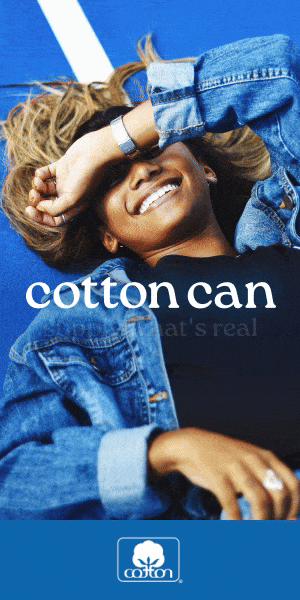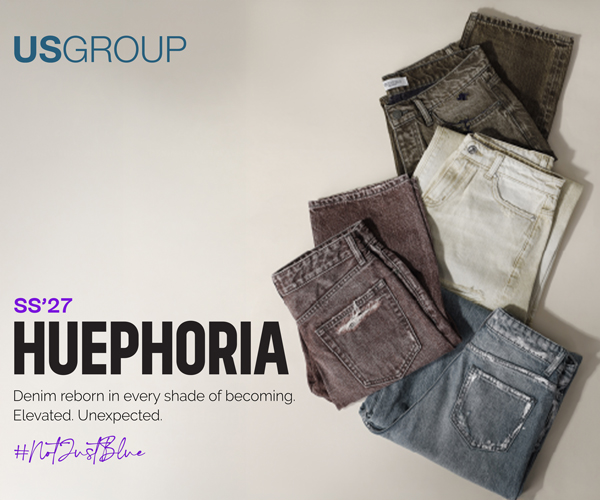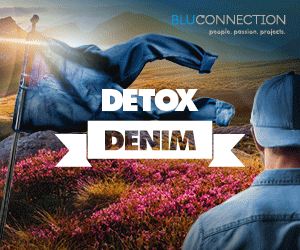A beacon of innovation

Finishing is a critical phase of jeans-making to create the industry’s requisite authentic effects but also for its potential impacts on the environment. In both areas, Soko has devised novel solutions that enhance a product’s aesthetics without taxing the planet.
In the thirty years since the denim industry made authentic worn-in effects a sine qua non, Soko Chimica’s innovation hub has been busy introducing alternative low-impact solutions for laundries at its headquarters in Florence, Italy.
In its Lumia platform, which fades jeans using ozone in dry conditions, its latest discovery, Diamond, introduces a novel application method using pieces of textiles. This, says Luca Braschi, Soko’s denim laundry expert, is a smarter way of applying Lumia. Its “towel touch” brightens abrasion markings by exalting high-low contrasts. It is easy to use and saves time as it takes place during the obligatory drying phase. This acid wash alternative eliminates the need for pumice stones and hazardous chemicals, it is conducted in waterless conditions and doesn’t degrade fabric strength while delivering the desired bleached effect.
Another example of the company’s out-of-the-box thinking can be seen in its recently launched Hydrogel process. “Real revolutions happen when we decide to leave the path everyone else is following to blaze a new trail. This is the mindset of our innovation team,” says Mr Braschi. Hydrogel is the result of the company’s quest to drastically reduce water consumption. “It creates a different environment inside the washing machine, leading to new effects while protecting the fibres, especially elastane yarns, from aggressive chemicals,” he explains.
The beauty of Hydrogel, he continues, is that it reduces processing down to a single bath to go from raw to bleached. It is, he believes, one of the least water-hungry fading treatments in the industry. The innovative compound is said to include everything needed to obtain a stone-washed look and is compatible with a wide range of chemicals. “As it changes the physical state of water to form a highly viscous solution, garments are enveloped in a safe bubble of gel,” he says. The technology could evolve to produce other effects, including dyeing, the company claims.
Keeping up with trends
Always on the lookout for novel solutions that meet market trends, Soko is currently focusing on coated and leather-like aesthetics. “This is a look that returns cyclically and that our Resoko Glossy, made from natural raw materials, delivers,” says Mr Braschi. Depending on the application method, this self-polishing finish creates either a permanent glossy or a vintage leather aspect.
The growing popularity of natural raw materials has inspired the company to develop a new range of dyestuffs called Rare. These natural mineral colours are applied using a fully natural dyeing process and auxiliaries derived from food industry by-products. “This means that the colours come from nature and can return to nature without any negative impact. We like this radical no-compromise approach which does not use any synthetic chemicals to expand shades or depth of colour,” he points out.
The company works closely with manufacturers, suppliers and brands to accelerate the industry’s ecological transition. “Our Projects Division provides technical support to our customers to help them achieve higher green scores, optimise process efficiency and improve the aesthetics of fabrics and garments,” says Mr Braschi. At Kingpins this April, denim mills Naveena and Rajby presented developments using Soko solutions to help lessen the industry’s environmental footprint. Adriano Goldschmied, who is a fan and has been collaborating with Soko for his Daily Blue line, presented a new capsule collection featuring garments whose finishing has been optimised to save up to 70% of water and without pumice or hazardous chemicals.
Research and development is continuous at Soko, well aware that the industry seeks to produce jeans that have character, but do not tax the planet. “Our goal is to create products that help the industry switch to better and greener solutions by simplifying processes, achieving better aesthetics and performance as new eco-fabrics and technologies develop,” says Mr Braschi.
The denim laundry business is only 30 years old, says Soko CEO Matteo Urbini. The company has been in the textile business for much longer and chose to develop denim solutions “because it is a very creative field that strives to make beautiful products”. And, he adds, “it is all the more beautiful when there is a good story to tell.”
Enhancing the details and contrasts of premium jeans using low-impact alternatives drives innovation at Soko.
All photos: Soko Chimica













